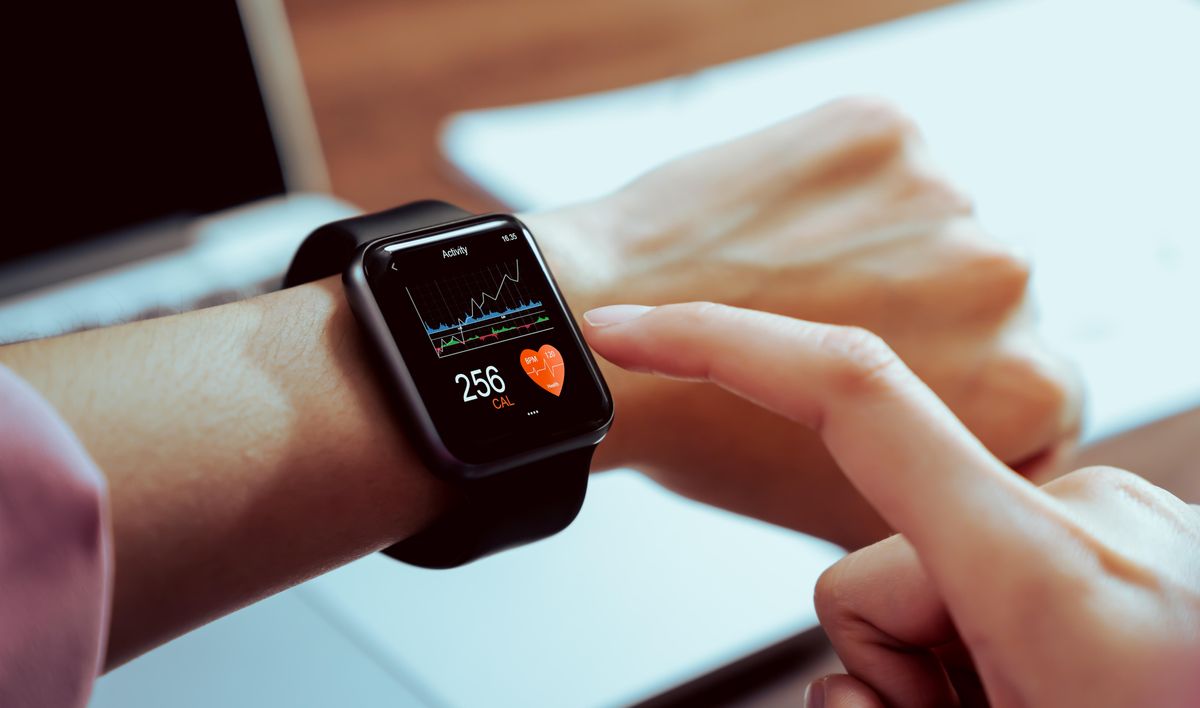Mayo Clinic researchers have developed an artificial-intelligence algorithm that can detect weak heart-pump functioning from a single-lead electrocardiogram (ECG) on the Apple Watch. Early results indicate that the ECG is as accurate as a medically ordered treadmill stress test but could be performed anywhere, the researchers say.
The single-lead AI algorithm was adapted from an existing algorithm that works by analyzing ventricular pumping data from a 12-lead ECG already in clinical use under an Emergency Use Authorization from the U.S. Food and Drug Administration (FDA).
Dr. Paul Friedman, chair of the clinic’s department of cardiovascular medicine, said the new technology could signal a new era for patients for whom making repeated trips to a hospital or cardiologist’s office are inconvenient at the very least and possibly health-threatening.
“We wanted to see if it could be done at home, and there are medical reasons why you might want to do that,” Friedman said. “For example, cancer patients receiving chemotherapy usually get echocardiograms every two to three months, but we can’t do it more often because it may damage the heart.
“When you think about a 12-lead ECG, you’re lying on a table,” Friedman added. “There’s a trained technologist preparing your skin, making sure you’re still, and that the quality of the data is good. But an ECG on a wearable can happen while you’re slouching on your sofa after dinner. Conditions are different; environments are noisy, and body positions vary. So it took a lot of technical ingenuity to make it fly. But when we tested it, it worked incredibly well.”
Averaging out
The AI algorithm the Mayo team created in 2019 for the 12-lead ECG used a convolutional neural network to detect subtle signs of ventricular dysfunction by comparing ECG data with labeled data from echocardiograms of the same patients. The researchers trained and validated the network with patient data from 44,959 ECG-echocardiogram pairs and tested it on 52,870 patients. The team found the network was 86 percent accurate in identifying patients with a weak ejection fraction, a symptom denoting cardiac dysfunction. The network's accuracy, Friedman said, was better than that of a mammogram in detecting evidence of cancer in a breast.
Itzhak Zachi Attia, the department’s lead AI scientist, said his team hypothesized that they could ascertain whether the watch-based ECG would be accurate enough to signal weak ejection fraction by going back to the 12-lead data set and reconfiguring the network. The new reconfiguration looked at only the data from one lead, which measured electrical voltage over time betweenthe left and right arms. That data is similar to the information generated by the Apple Watch’s ECG, Attia said.
The Mayo Clinic team then calculated the average reading from a month’s worth of ECGs using the Apple Watch to yield a better signal-to-noise ratio. Almost 2,500 patients—each with an iPhone, the Mayo Clinic app, and a Series 4 or later Apple Watch— took part in the study. But the investigators used only the data from 420 patients who’d had an echocardiogram in a clinical setting prescribed within 30 days of their ECG data being analyzed.
Attia said the test had an area under the curve of 0.88, meaning it was as accurate as or slightly better than a commonly used treadmill stress test. The Mayo Clinic team is now running a worldwide clinical trial of the technology (scheduled to continue through June 2023) for patients of the clinic who fit the cohort parameters.
Friedman said the technique can be adapted to any wearable with an ECG function; the vital data resides in existing clinical data sets.
“It is absolutely agnostic,” he said. “Other wearable devices that deliver a suitable quality ECG would also be able to support the algorithm.”
FDA approves Fitbit A-fib technology
Almost contemporaneously with the Mayo findings, the FDA expanded the approved ecosystem of wearable cardiac-monitoring devices: The agency approved Fitbit’s atrial fibrillation (A-fib) detection mechanism.
The FDA approved the Fitbit technology in April and classified it as being substantially equivalent to the Apple Watch A-fib technology, which received FDA approval in October 2021.
Both technologies rely on photoplethysmograph (PPG) sensors that detect changes in blood flow. While a normal sinus rhythm is recognizable through regularly spaced pulses and consistent morphologies, the PPG algorithm detects possible A-fibs as irregular intervals between pulses and varying pulse morphologies. One of the drawbacks of PPG technology in sensing A-fib, however, is a vulnerability to signal noise caused by factors such as a person’s movement. To reduce chances of noisy A-fib detection, both the Fitbit and Apple PPG technologies are recommended for use when a subject is sitting or lying still.
Fitbit lead research scientist Tony Faranesh said the company’s technology is especially effective while a user is asleep. As an over-the-counter technology, it is not intended as a formal diagnostic tool but rather as an early warning signal: “We believe there may be benefit both to patients and the health-care system in catching irregular heart rhythms earlier, before medical events such as strokes occur,” Faranesh said.
Friedman said these recent demonstrations of expanded cardiac-monitoring functionality on wearables could serve as vital decision support for frontline physicians who don’t have large data sets or specialized cardiac expertise at their disposal. “Hopefully, this type of technology, if properly deployed, will enhance the capabilities of small-town doctors everywhere by putting some of the skills of a tertiary-care cardiologist in their pockets.”
- We've Entered a New Era of Streaming Health Care. Now What ... ›
- Steps Toward Health Data Standards for Wearables - IEEE Spectrum ›
- New Contactless ECG Continuously Monitors the Heart - IEEE Spectrum ›



